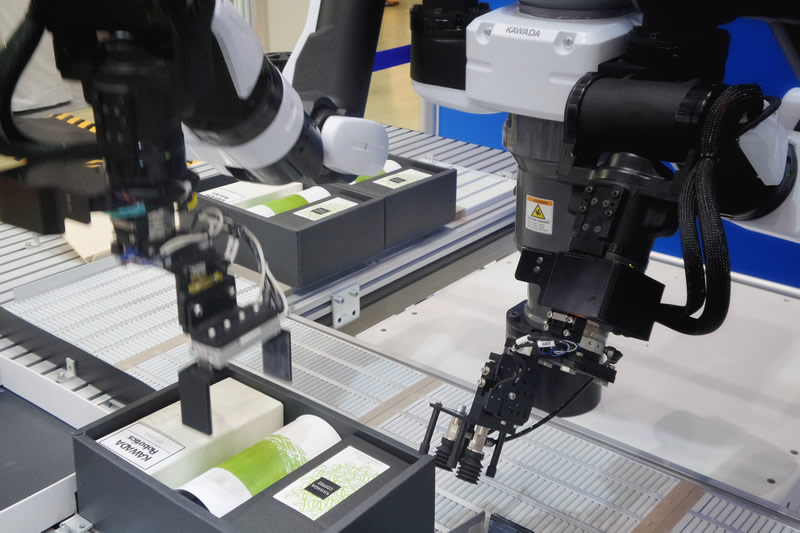Industry 4.0 is the fourth industrial revolution characterized by the integration of digital technologies, such as the Internet of Things, artificial intelligence, and automation, into manufacturing processes to create smart, connected, and highly efficient industrial systems.
As a result of the pervasive integration of digital technologies into various industries, the landscape of technical language translations is undergoing a profound transformation. As the fourth industrial revolution unfolds, the need for accurate and agile translation processes becomes increasingly critical. This article explores the impact of Industry 4.0 on technical translations, shedding light on the emergence of new technical terms and the imperative for dynamic translation methodologies in rapidly evolving technological landscapes.
Industry 4.0: A Technological Revolution
Industry 4.0 represents a paradigm shift in manufacturing and related sectors, marked by the convergence of physical and digital technologies. Key components include the Internet of Things (IoT), artificial intelligence (AI), big data, and automation. As industries embrace smart factories, interconnected systems, and data-driven decision-making, the language employed in technical documentation undergoes a radical transformation. This shift necessitates a reevaluation of traditional translation processes to keep pace with the evolving terminology.
Emergence of New Technical Terms
The integration of cutting-edge technologies in Industry 4.0 brings forth a plethora of new technical terms. These terms often lack direct equivalents in other languages, posing a significant challenge for translators. Concepts such as “cyber-physical systems,” “edge computing,” and “smart sensors” demand precise translation to maintain the integrity of information across languages. The evolving lexicon requires translators to stay abreast of the latest technological developments, necessitating continuous education and training.
Challenges in Technical Translations
Ambiguity and Context Sensitivity
The dynamic nature of Industry 4.0 technologies introduces ambiguity and context sensitivity into technical documents. Translators must navigate through intricate technical nuances, ensuring that the translated content is not only linguistically accurate but also contextually relevant. Inaccuracies in translation may lead to misinterpretations and, subsequently, operational errors in the implementation of advanced technologies.
Rapid Evolution of Terminology
The pace at which new technologies emerge and evolve in Industry 4.0 is unprecedented. This rapid evolution results in a continuous stream of novel terms and concepts, making it challenging for traditional translation processes to keep up. Translators must adopt agile methodologies that enable quick adaptation to evolving terminologies, ensuring that the translations remain up-to-date and aligned with the latest industry standards.
The Need for Agile Translation Processes
Continuous Learning and Collaboration
To address the challenges posed by Industry 4.0, translators need to embrace continuous learning and collaboration. Staying informed about the latest technological advancements, participating in industry forums, and collaborating with subject matter experts become essential. This collaborative approach ensures that translations are not only accurate linguistically but also aligned with the contextual intricacies of rapidly evolving technologies.
Integration of Translation Technologies
Industry 4.0 also brings forth advancements in translation technologies. Machine translation, artificial intelligence, and natural language processing can be harnessed to streamline the translation process. However, the human touch remains indispensable for nuanced technical content. Translators need to strike a balance between leveraging these technologies for efficiency and preserving the precision and context required in technical translations.
Bottom Line
The impact of Industry 4.0 on technical translations is profound, reshaping the way information is communicated across linguistic boundaries. The emergence of new technical terms and the rapid evolution of terminology demand a paradigm shift in translation processes.
Translators must adopt agile methodologies, engage in continuous learning, and leverage cutting-edge translation technologies to navigate the complexities of Industry 4.0 and ensure the seamless dissemination of knowledge in a globalized world.
As Industry 4.0 continues to unfold, the role of the technical translator becomes increasingly pivotal in bridging the linguistic and technological gaps that characterize this transformative era.
TrueLanguage and our partner Powerling are uniquely positioned to offer help and guidance We provide top-notch translators of course, but we can also engage excellent technical writers to help with your next technical translation project.


